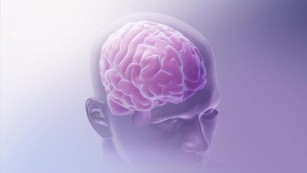Results 1 to 2 of 2
Thread Information
Users Browsing this Thread
There are currently 1 users browsing this thread. (0 members and 1 guests)
-
03-02-2018, 07:12 PM #1
Alcohol use linked to early-onset dementia risk
Excessive alcohol use linked to early-onset dementia risk
By Mark Lieber, CNN
Updated 9:05 AM ET, Wed February 21, 2018
(CNN)Excessive alcohol use could increase your risk for all types of dementia, particularly early-onset dementia, according to a new study.
The study, published Tuesday in the journal Lancet Public Health, looked at over 1 million adults released from French hospitals between 2008 and 2013 who were diagnosed with dementia, a clinical syndrome characterized by a progressive deterioration in cognitive ability.
Using data from the French National Hospital Discharge database, the researchers found that alcohol-use disorders were diagnosed in 16.5% of the men with dementia and 4% of the women with dementia -- over twice as much as in those without dementia for both sexes.
Alcohol-use disorders refer to "the chronic harmful use of alcohol or alcohol dependence," the researchers wrote.

What too much alcohol can do you to your health
In order to isolate the role of alcohol use, patients with neurological disorders such as Parkinson's and Huntington's, which can also lead to dementia, were excluded from the study.
"The most novel result is the large contribution of alcohol-use disorders to the burden of dementia over the lifespan," said Dr. Michael Schwarzinger, a researcher at the Transitional Health Economics Network in Paris and a leading author of the study.
The association was particularly strong for those with early-onset dementia, diagnosed when the patient is younger than 65. Over half of the individuals in the early-onset group had alcohol-related dementia or an additional diagnosis of alcohol-use disorder.
"Given the strength of the association, what is the most surprising to me is that alcohol-use disorders had received so little interest in dementia research and public health policies," Schwarzinger said.
How alcohol might damage the brain
Although many studies have shown a strong association between excessive alcohol use and dementia, this study is unique in its findings about early-onset dementia, according to Dr. Kostas Lyketsos, a neuropsychiatry professor and director of the Johns Hopkins Memory and Alzheimer's Treatment Center who was not involved in the study.
"That is rather unique," Lyketsos said. "It does remind us that alcoholics have shorter life expectancies."
The study was also among the largest of its kind. But, according to Lyketsos, the large size could leave the study open to selection bias.
"There's a tradeoff between size and precision of the variables," he said. "The more people you have, the less confidence you have in the elements that go into the diagnosis of dementia.
"I also want to point out that this was really a sample of hospitalized individuals. It's very unusual for people with dementia, at least in the milder stages, to be hospitalized," he added.

Lower-class drinkers face worse heart health risks, study says
Research suggests multiple ways heavy alcohol use can lead to dementia. First, ethanol and its byproduct acetaldehyde are known to have a toxic effect on the brain that can lead to long-term structural and functional brain damage, Schwarzinger says.
Heavy alcohol use can also lead to a condition called hepatic encephalopathy, characterized by a loss in brain function due to increases of ammonia in the blood caused by liver damage.
"Heavy drinking is also strongly associated with vascular risk factors such as high blood pressure or diabetes mellitus as well as cardiovascular diseases," Schwarzinger added.
"Lastly, heavy drinking clusters (in) people with less education, smoking habits, and/or depression. All of these factors were found to be independent risk factors for dementia onset."
Though heavy alcohol use increased the risk of dementia in general, the association was shown to be stronger in men.
When other factors were not controlled for, heavy drinking was associated with a higher risk of dementia among both men and women. In men, the risk was increased by a factor of 4.7, while in women, it increased by a factor of 4.3.
But even when the researchers controlled for factors like high blood pressure, obesity and tobacco smoking, heavy alcohol use was still associated with a more than threefold increase in dementia among both sexes.
Results differed by sex
The study also showed that the average age of dementia onset differed between men and women. Men were more likely to develop it a younger age and women at an older age.

Why it's so hard to treat dementia
"Gender differences on dementia onset have been puzzling for decades," Schwarzinger said. "Men have a poorer lifestyle than women on average, in particular heavier alcohol consumption.
Therefore, it is somewhat unsurprising that early-onset dementia identifies a cluster of men with alcohol use disorders."
The gender difference could also result from the study's methodology, according to Lyketsos.
"That was one of the reasons I'm a little concerned about selection bias," he said. "There could be a gender effect on who goes to the hospital with dementia."
Alcohol use was also not objectively measured in the participants, one of the study's main limitations.
"We have no idea what is the level of drinks they were actually drinking," Schwarzinger added. "That kind of information you can only get in a cohort study with a questionnaire."
Follow CNN Health on Facebook and Twitter
See the latest news and share your comments with CNN Health on Facebook and Twitter.
Though the study had a very large sample size, it looked at individuals in only one country, making it difficult to generalize across cultures. According to a 2014 report from the World Health Organization, each person consumes an average of 12.2 liters of pure alcohol in France versus 9.2 liters in the United States.
But Schwarzinger cautioned that people outside France should still take the findings seriously: "While the rate of alcohol use disorders is lower in the USA, it remains substantial enough to be considered major risk factor for dementia onset."
https://www.cnn.com/2018/02/20/healt...ia-risk-study/
NO AMNESTY
Don't reward the criminal actions of millions of illegal aliens by giving them citizenship.
Sign in and post comments here.
Please support our fight against illegal immigration by joining ALIPAC's email alerts here https://eepurl.com/cktGTn
-
03-02-2018, 08:20 PM #2Senior Member

- Join Date
- Jan 2012
- Posts
- 4,815
7 ways to avoid airborne Alzheimer’s
Joyce Hollman

It’s no secret that air pollution affects our lungs…
Breathing the toxic chemicals that spew from factories and vehicle exhaust causes chronic respiratory disease, asthma, and emphysema, not to mention lung cancer.
What you may not know is that your brain can also suffer irreversible damage from the effects of air pollution…
In a 2015 study, researchers compared the cognitive development of two groups of school children, ages 7 to 10 years old, for a period of 12 months. One group attended schools in high-traffic areas, and the other group attended schools in less polluted areas.
Over the course of the year, children in the more polluted environment saw only a 7.4 percent increase in cognitive skills, while their peers, who breathed cleaner air, saw their skills increase 11.5 percent.
If breathing in toxins can impact the brains of children this significantly in just a year’s time, can you imagine what the same polluted air is — and has been — doing to your brain over the last several decades?
The tiny particles infecting your brain
Arian Saffari is a chemical engineer who collects, sorts, and studies air pollution particles in a lab at the University of Southern California. He’s most interested in ultra-fine particles 200 times smaller than the width of a human hair.
Particle pollution is usually a mixture of solids and liquids floating in the air, so it’s airborne, in much the same way you might think of viral or bacterial microbes.
PM2.5 particles are present in pretty much all air pollution, and invade our lungs most easily because they are so small. That means they do the most damage, causing oxidative stress, inflammation and cell damage.
More and more evidence is confirming that these nanoparticles are also responsible for triggering cognitive decline and Alzheimer’s disease:
- A University of Southern California study found that older women who live in areas where PM2.5 air pollution is higher than the U.S. Environmental Protection Agency’s standard are 81 percent more likely to develop cognitive decline, and 92 percent more likely to develop Alzheimer’s or dementia.
- Researchers at the University of Toronto reported that people living within 164 feet of a major road were 12 percent more likely to develop dementia than people living more than 656 feet away.
- University of Rochester researchers were able to prove that inhaled PM2.5 particles can get through the nasal membranes of mice and travel along neurons directly to the cerebellum, where they trigger inflammation.
- In a review of 18 epidemiologic studies from six countries, all but one showed an association between high intake of PM2.5 particles and signs of dementia.
There’s a lot you can do to protect yourself
Although it’s hard to avoid air pollution, there are quite a few steps you can take to greatly reduce your chances of falling victim to pollution-induced Alzheimer’s disease.
First you’ve got to give your body a hand at ridding itself of particulate matter and other forms of pollution… and then you’ve got to combat the effects of years of exposure while boosting your brain protection. Here’s how…
- Eat broccoli sprouts. Read more about how this superfood can help rid your body of the toxins you breathe.
- Consider oral EDTA chelation. Chelation uses a binding agent to “grab on” to harmful contaminants, binding to them and sending them out in the wash, so to speak. Learn more here.
- Load up on B Vitamins. A Columbia University study showed that supplementing with Vitamins B6, B12, and folic acid dramatically reduced the negative impact of air pollution on DNA.
- Load up on antioxidant-rich foods like blueberries, dark chocolate, kidney beans and cherries to combat the oxidative stress behind cognitive decline.
- Supplement with CoQ10 and PQQ. Together, these two enzymes help protect the brain’s neuron cells (the cells that pollution particles hitch a ride on to get directly to your cerebellum) by boosting mitochondria and reducing oxidative stress.
- Boost your body’s master antioxidant. Your body produces less glutathione, the body’s master antioxidant, as you age. The best way to boost it is to get moderate exercise, and eat cruciferous vegetables like broccoli, Brussels sprouts, cabbage and cauliflower. Rooibos tea and holy basil can also stimulate production of glutathione.https://easyhealthoptions.com/7-ways...ne-alzheimers/
Similar Threads
-
Sleeping pills 'linked to increased death risk'
By JohnDoe2 in forum Other Topics News and IssuesReplies: 0Last Post: 02-28-2012, 04:55 PM -
Shaken Troops Face New Foe: Early Dementia
By AirborneSapper7 in forum Other Topics News and IssuesReplies: 1Last Post: 09-23-2011, 04:20 AM -
Flu shots linked to lower heart attack risk
By JohnDoe2 in forum Other Topics News and IssuesReplies: 1Last Post: 09-26-2010, 05:24 PM -
Vets with post-traumatic stress are at high risk of dementia
By JohnDoe2 in forum Other Topics News and IssuesReplies: 0Last Post: 07-12-2009, 11:40 PM -
The Less the Education, the Higher the Risk of Dying Early
By AirborneSapper7 in forum Other Topics News and IssuesReplies: 1Last Post: 05-15-2008, 10:05 AM


 1Likes
1Likes LinkBack URL
LinkBack URL About LinkBacks
About LinkBacks




 Reply With Quote
Reply With Quote


Mike Johnson betrays border security for more foreign aid
04-18-2024, 10:31 PM in illegal immigration News Stories & Reports